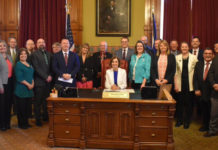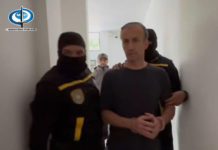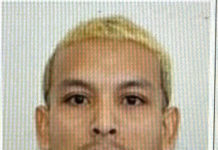
Septiembre 02, 2018.- Han sido 2.700 kilómetros de una fuga a pie y en autoestop. En el camino, los Mendoza Landinez se han cruzado con toda suerte de obstáculos que por momentos parecían que los atarían para siempre a la crisis en Venezuela.
Como para miles de los migrantes venezolanos, el viaje fue una montaña rusa de emociones, con un añadido: Joel Mendoza y su pareja Edicth Landinez, los hijos de ella Nacari y Sebastián, además de su sobrina Eliana Balza y su bebé de brazos Tiago, viajaron a contrarreloj para llegar a Perú antes de que se venciera el plazo para entrar sin pasaporte.
La AFP los acompañó durante tres días en su travesía por una segunda oportunidad para los migrantes que cruzan Colombia, Ecuador y Perú.
1. Jueves 23. Felicidad
Hace frío pero no llueve. Es lo habitual en las afueras de la ciudad colombiana de Pasto. Hacia el mediodía, sobre la carretera Panamericana, que atraviesa Sudamérica, circula una camioneta beige. En ella van once venezolanos, siete en el platón y cuatro en la cabina. Tres son menores de edad.
A lo lejos, entre brazos recogidos para protegerse del viento, resalta un sombrero blanco de fique. Con sus manos pesadas, Joel protege a Edicth, su pareja hace medio año y compañera de viaje desde el 15 de agosto, cuando abandonaron Guanare, en el oeste venezolano.
Impotentes porque sus sueldos como conductor de camión y empleada doméstica no alcanzaban para “nada” (con el salario semanal de él solo compraban un kilo de jabón), cruzaron a Colombia por el municipio de Puerto Santander.
A las horas de recorrer el país, que en los últimos 16 meses ha recibido a más de un millón de personas desde Venezuela, supieron que aquí el clima es muy diferente. Y que comerían cuando alguien les extendiera la mano.
“Es un precio muy caro el que se paga por dejar el país”, dice Joel, de 51 años. “Todo lo que uno ha hecho con tanto esfuerzo, despegarse de eso es fuerte”, añade Edicth, de 34, aunque su piel y ojos cansados la hacen ver mayor. Ambos solo llevan la ropa que tienen puesta y maletas con cobijas.
Pese a todo, este jueves ha sido benévolo. El chófer del camión que durante 40 horas los transportó gratis desde el otro lado de Colombia les compró desayuno y una venezolana, que en julio realizó su misma odisea y ahora atiende un restaurante, les obsequió el almuerzo. Rezan.
Iniciaron la jornada a las 06:00 y ocho horas después hacen el último transbordo del día a un vehículo con estacas -que los deja a pocos kilómetros de Ipiales, en los límites con Ecuador- y que comparten con sus compatriotas de la camioneta beige.
Durante la caminata de hora y media hasta el centro migratorio los invade la incertidumbre. Edicth es la única que tiene pasaporte, exigido por Ecuador para controlar la ola migratoria. Por la vía se cruzan con venezolanos desanimados que les recomiendan devolverse.
“Tengo fe en que nos van a dejar pasar”, dice la matrona, mientras Joel, nervioso, fuma un cigarrillo. Ha caído el sol y con él la temperatura.
Nacari, de 16 años, y Sebastián, de seis, descansan sobre el equipaje. No se han quejado una sola vez. Eliana (19), que carga a Tiago, de cinco meses, apenas si ha pronunciado palabra.
A las 18:40, de las oficinas colombianas de migración salen murmullos. Los oficiales les avanzan que Ecuador los dejará pasar mostrando las cédulas y además los llevarán en buses gratuitos hasta Perú.
“¡Bendito Dios!”, clama Joel. Oran nuevamente, se abrazan y empiezan a hacer la fila para cruzar el puente Rumichaca. “¡Estoy que brinco en una pata!”, dice Edicth develando la sonrisa más amplia del día. No durará mucho.
2. Viernes 24. Separación
Aliviados, los Mendoza Landinez descansan en carpas de la Cruz Roja ecuatoriana en las aceras de Tulcán, el primer pueblo tras la frontera con Colombia, donde se agolpan cientos de venezolanos.
A las 00:20 los despiertan para abordar el bus, tras un retraso de cuatro horas. El frío es brutal. Edicth acaba de ser informada de que debe regresar a Colombia para sellar un documento de su hijo Sebastián.
Debe ser rápida, pues por viajar con menores tienen cupo en los primeros vehículos que partirán a Huaquillas, en la frontera de Ecuador y Perú, donde los espera su hijo mayor Leonardo y Evelyn, su hermana y madre de Eliana.
Tras ir y volver, Edicth resuelve el impasse de “Sebas”, tan abrigado que parece una momia. Pero entonces surge lo inesperado: Eliana no puede pasar porque su cédula está deteriorada y migración teme que sea falsa. “Ella ‘guevoneó’ (perdió tiempo) y no fue a sacar esa vaina”, maldice entre dientes Joel.
Nada que hacer: ni la sobrina ni Tiago pueden seguir. “Yo sin ella no me voy”, advierte Edicth. “Yo me tengo que ir, si no paso hoy, no paso” a Perú, le reclama Joel. Al final un pequeño alivio, Ecuador les dará un permiso temporal de estancia a la mujer y el pequeño.
Son las 02:10 y el viaje a Huaquillas dura entre 16 y 18 horas, tienen el tiempo justo para llegar antes de las 00:00 del sábado, cuando los peruanos empezarán a exigirles pasaporte. Eliana, desafiante, dice que se quedará con los compañeros de la camioneta beige que van a Quito. Llora. El aseo del bebé deja ver una irritación en genitales por falta de pañales.
Edicth intenta consolarla. “¿Toda esta travesía para esto?”, se pregunta con la voz entrecortada. Se funden en un abrazo y a las 02:47 se montan en el autobús.
En la primera parada la madre Landinez reconoce que no pudo dormir. Sebastián fue el único que pudo comer: unas galletas. “Eliana está sola allá con el bebé”. Pide un teléfono prestado y llama a su hermana, con quien discute.
El vehículo retoma la marcha. En su interior los venezolanos cantan reguetón y hacen chistes. Los Mendoza Landinez intentan recuperar el sueño perdido, pero se despiertan con una mala nueva: van retrasados y difícilmente podrán llegar a Perú dentro del plazo.
3. Sábado 25. Ilusión
El autobús de matrícula PAC-4945 se estaciona en Huaquillas. El reloj marca las 03:55. Hace casi cuatro horas que Perú cerró su frontera para los venezolanos sin pasaporte. Los ocupantes lucen desesperanzados. “Nosotros hubiéramos llegado legal si no fuera por tanta paradera”, se queja Edicth. Se une al coro de migrantes que denuncian dilaciones de Ecuador para traerlos a tiempo.
La ausencia de la sobrina -para entonces ya en Quito- atormenta a la tía.
Hace tres meses que su hermana, de 38 años, llegó con Leonardo, de 17, a Lima. El primer mes el hijo mayor de Edicth trabajó como obrero, pero entró en una profunda depresión y fue internado en un hospital. Evelyn se dedicó a cuidarlo y perdió el empleo de cocinera en un restaurante limeño.
“Entiendo su molestia”, apunta Edicth. Interrumpe su relato cuando le sugieren montarse de nuevo en el vehículo y transitar los pocos kilómetros hasta Tumbes, donde empieza Perú. No todo está perdido: pueden pedir condición de refugiados.
“Aguantar hambre, pedir plata, pasar necesidades, es la primera vez que hago eso” y todo “para estar acá”, dice Nacari al borde del llanto. En estos tres días no se han bañado.
Los Mendoza Landinez hacen una fila que se mueve rápido para ingresar a una sala en la que se estudiará su caso. Si les dan el aval podrán estar temporalmente en Perú. Joel ya visualiza cómo llegarán al refugio en el que vive Evelyn, que pese a todo los recibirá: “De mochileros, como nos vinimos de Venezuela. Ya somos ganadores”.
por Rodrigo ALMONACID/AFP
/ AFP PHOTO / Luis ROBAYO

On foot, by bus, on the backs of juddering trucks, like tens of thousands of others they slogged for days along the Pan-American highway through Colombia and Ecuador. Grubby and sleepless, their goal was to reach Peru, a sanctuary of sorts for a desperate Venezuelan family. Exhausted and swept by the endless wash of traffic noise on the highway’s shoulder, the Mendoza Landinez family had the additional pressure of a deadline: to enter Peru before new rules required them to produce a passport.
/ AFP PHOTO / Luis ROBAYO

On foot, by bus, on the backs of juddering trucks, like tens of thousands of others they slogged for days along the Pan-American highway through Colombia and Ecuador. Grubby and sleepless, their goal was to reach Peru, a sanctuary of sorts for a desperate Venezuelan family. Exhausted and swept by the endless wash of traffic noise on the highway’s shoulder, the Mendoza Landinez family had the additional pressure of a deadline: to enter Peru before new rules required them to produce a passport.
/ AFP PHOTO / Luis ROBAYO

On foot, by bus, on the backs of juddering trucks, like tens of thousands of others they slogged for days along the Pan-American highway through Colombia and Ecuador. Grubby and sleepless, their goal was to reach Peru, a sanctuary of sorts for a desperate Venezuelan family. Exhausted and swept by the endless wash of traffic noise on the highway’s shoulder, the Mendoza Landinez family had the additional pressure of a deadline: to enter Peru before new rules required them to produce a passport.
/ AFP PHOTO / Luis ROBAYO

On foot, by bus, on the backs of juddering trucks, like tens of thousands of others they slogged for days along the Pan-American highway through Colombia and Ecuador. Grubby and sleepless, their goal was to reach Peru, a sanctuary of sorts for a desperate Venezuelan family. Exhausted and swept by the endless wash of traffic noise on the highway’s shoulder, the Mendoza Landinez family had the additional pressure of a deadline: to enter Peru before new rules required them to produce a passport.
/ AFP PHOTO / Luis ROBAYO

On foot, by bus, on the backs of juddering trucks, like tens of thousands of others they slogged for days along the Pan-American highway through Colombia and Ecuador. Grubby and sleepless, their goal was to reach Peru, a sanctuary of sorts for a desperate Venezuelan family. Exhausted and swept by the endless wash of traffic noise on the highway’s shoulder, the Mendoza Landinez family had the additional pressure of a deadline: to enter Peru before new rules required them to produce a passport.
/ AFP PHOTO / Luis ROBAYO

On foot, by bus, on the backs of juddering trucks, like tens of thousands of others they slogged for days along the Pan-American highway through Colombia and Ecuador. Grubby and sleepless, their goal was to reach Peru, a sanctuary of sorts for a desperate Venezuelan family. Exhausted and swept by the endless wash of traffic noise on the highway’s shoulder, the Mendoza Landinez family had the additional pressure of a deadline: to enter Peru before new rules required them to produce a passport.
/ AFP PHOTO / Luis ROBAYO

On foot, by bus, on the backs of juddering trucks, like tens of thousands of others they slogged for days along the Pan-American highway through Colombia and Ecuador. Grubby and sleepless, their goal was to reach Peru, a sanctuary of sorts for a desperate Venezuelan family. Exhausted and swept by the endless wash of traffic noise on the highway’s shoulder, the Mendoza Landinez family had the additional pressure of a deadline: to enter Peru before new rules required them to produce a passport.
/ AFP PHOTO / Luis ROBAYO

On foot, by bus, on the backs of juddering trucks, like tens of thousands of others they slogged for days along the Pan-American highway through Colombia and Ecuador. Grubby and sleepless, their goal was to reach Peru, a sanctuary of sorts for a desperate Venezuelan family. Exhausted and swept by the endless wash of traffic noise on the highway’s shoulder, the Mendoza Landinez family had the additional pressure of a deadline: to enter Peru before new rules required them to produce a passport.
/ AFP PHOTO / Luis ROBAYO

On foot, by bus, on the backs of juddering trucks, like tens of thousands of others they slogged for days along the Pan-American highway through Colombia and Ecuador. Grubby and sleepless, their goal was to reach Peru, a sanctuary of sorts for a desperate Venezuelan family. Exhausted and swept by the endless wash of traffic noise on the highway’s shoulder, the Mendoza Landinez family had the additional pressure of a deadline: to enter Peru before new rules required them to produce a passport.
/ AFP PHOTO / Luis ROBAYO

On foot, by bus, on the backs of juddering trucks, like tens of thousands of others they slogged for days along the Pan-American highway through Colombia and Ecuador. Grubby and sleepless, their goal was to reach Peru, a sanctuary of sorts for a desperate Venezuelan family. Exhausted and swept by the endless wash of traffic noise on the highway’s shoulder, the Mendoza Landinez family had the additional pressure of a deadline: to enter Peru before new rules required them to produce a passport.
/ AFP PHOTO / Luis ROBAYO

On foot, by bus, on the backs of juddering trucks, like tens of thousands of others they slogged for days along the Pan-American highway through Colombia and Ecuador. Grubby and sleepless, their goal was to reach Peru, a sanctuary of sorts for a desperate Venezuelan family. Exhausted and swept by the endless wash of traffic noise on the highway’s shoulder, the Mendoza Landinez family had the additional pressure of a deadline: to enter Peru before new rules required them to produce a passport.
/ AFP PHOTO / Luis ROBAYO

On foot, by bus, on the backs of juddering trucks, like tens of thousands of others they slogged for days along the Pan-American highway through Colombia and Ecuador. Grubby and sleepless, their goal was to reach Peru, a sanctuary of sorts for a desperate Venezuelan family. Exhausted and swept by the endless wash of traffic noise on the highway’s shoulder, the Mendoza Landinez family had the additional pressure of a deadline: to enter Peru before new rules required them to produce a passport.
/ AFP PHOTO / Luis ROBAYO

On foot, by bus, on the backs of juddering trucks, like tens of thousands of others they slogged for days along the Pan-American highway through Colombia and Ecuador. Grubby and sleepless, their goal was to reach Peru, a sanctuary of sorts for a desperate Venezuelan family. Exhausted and swept by the endless wash of traffic noise on the highway’s shoulder, the Mendoza Landinez family had the additional pressure of a deadline: to enter Peru before new rules required them to produce a passport.
/ AFP PHOTO / Luis ROBAYO

On foot, by bus, on the backs of juddering trucks, like tens of thousands of others they slogged for days along the Pan-American highway through Colombia and Ecuador. Grubby and sleepless, their goal was to reach Peru, a sanctuary of sorts for a desperate Venezuelan family. Exhausted and swept by the endless wash of traffic noise on the highway’s shoulder, the Mendoza Landinez family had the additional pressure of a deadline: to enter Peru before new rules required them to produce a passport.
/ AFP PHOTO / Luis ROBAYO

On foot, by bus, on the backs of juddering trucks, like tens of thousands of others they slogged for days along the Pan-American highway through Colombia and Ecuador. Grubby and sleepless, their goal was to reach Peru, a sanctuary of sorts for a desperate Venezuelan family. Exhausted and swept by the endless wash of traffic noise on the highway’s shoulder, the Mendoza Landinez family had the additional pressure of a deadline: to enter Peru before new rules required them to produce a passport.
/ AFP PHOTO / Luis ROBAYO

On foot, by bus, on the backs of juddering trucks, like tens of thousands of others they slogged for days along the Pan-American highway through Colombia and Ecuador. Grubby and sleepless, their goal was to reach Peru, a sanctuary of sorts for a desperate Venezuelan family. Exhausted and swept by the endless wash of traffic noise on the highway’s shoulder, the Mendoza Landinez family had the additional pressure of a deadline: to enter Peru before new rules required them to produce a passport.
/ AFP PHOTO / Luis ROBAYO

On foot, by bus, on the backs of juddering trucks, like tens of thousands of others they slogged for days along the Pan-American highway through Colombia and Ecuador. Grubby and sleepless, their goal was to reach Peru, a sanctuary of sorts for a desperate Venezuelan family. Exhausted and swept by the endless wash of traffic noise on the highway’s shoulder, the Mendoza Landinez family had the additional pressure of a deadline: to enter Peru before new rules required them to produce a passport.
/ AFP PHOTO / Luis ROBAYO

On foot, by bus, on the backs of juddering trucks, like tens of thousands of others they slogged for days along the Pan-American highway through Colombia and Ecuador. Grubby and sleepless, their goal was to reach Peru, a sanctuary of sorts for a desperate Venezuelan family. Exhausted and swept by the endless wash of traffic noise on the highway’s shoulder, the Mendoza Landinez family had the additional pressure of a deadline: to enter Peru before new rules required them to produce a passport.
/ AFP PHOTO / Luis ROBAYO

On foot, by bus, on the backs of juddering trucks, like tens of thousands of others they slogged for days along the Pan-American highway through Colombia and Ecuador. Grubby and sleepless, their goal was to reach Peru, a sanctuary of sorts for a desperate Venezuelan family. Exhausted and swept by the endless wash of traffic noise on the highway’s shoulder, the Mendoza Landinez family had the additional pressure of a deadline: to enter Peru before new rules required them to produce a passport.
/ AFP PHOTO / Luis ROBAYO

On foot, by bus, on the backs of juddering trucks, like tens of thousands of others they slogged for days along the Pan-American highway through Colombia and Ecuador. Grubby and sleepless, their goal was to reach Peru, a sanctuary of sorts for a desperate Venezuelan family. Exhausted and swept by the endless wash of traffic noise on the highway’s shoulder, the Mendoza Landinez family had the additional pressure of a deadline: to enter Peru before new rules required them to produce a passport.
/ AFP PHOTO / Luis ROBAYO

On foot, by bus, on the backs of juddering trucks, like tens of thousands of others they slogged for days along the Pan-American highway through Colombia and Ecuador. Grubby and sleepless, their goal was to reach Peru, a sanctuary of sorts for a desperate Venezuelan family. Exhausted and swept by the endless wash of traffic noise on the highway’s shoulder, the Mendoza Landinez family had the additional pressure of a deadline: to enter Peru before new rules required them to produce a passport.
/ AFP PHOTO / Luis ROBAYO
De migrantes a refugiados: Un diario del escape a la crisis en Venezuela










